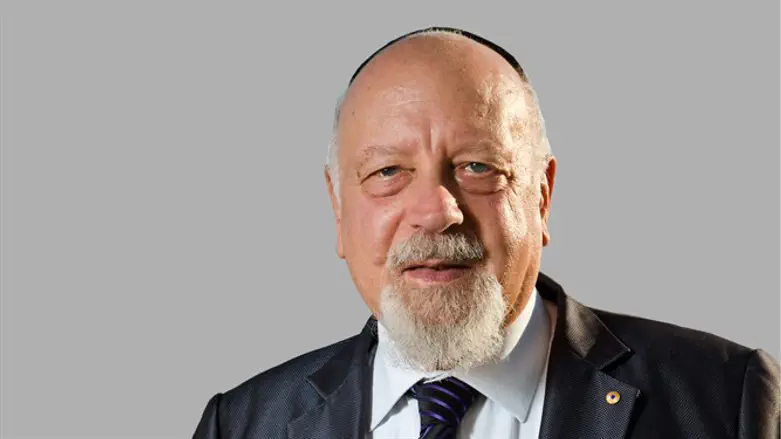
There are some people who go to Yom Kippur services out of mere habit or because of respect for their parents. They join in the familiar tunes but they wriggle for most of the time that they are in synagogue. It could be out of intellectual honesty.
They have very little sympathy with the theology of the prayers and they are not so sure that they really want to be in a situation which more or less pressures you towards conventional religious belief.
The inter-war chief rabbi of Eretz Yisra’el, the mystic, poet and philosopher Rav Avraham Yitzchak HaKohen Kook, was in two minds about the people who had problems with religion.
On the one hand he thought rebellion against religion was real chutzpah; on the other he saw it as genuine grappling with God. He used, however, two qualifying adjectives – higher and lower chutzpah.
Lower chutzpah was the sneering dismissal of all religion; higher chutzpah was the sincere attempt to argue with belief.
Rav Kook was criticised for suggesting that atheists were really honest seekers after the truth. The criticism was not merely from the believers but from the atheists themselves. In colloquial language they were telling him, "Don’t kid yourself!"
Yet Rav Kook was not really so naive. His attitude is searchingly analysed in the writings of Rabbi Jonathan Sacks, for example in "Tradition in an Untraditional Age".
Rabbi Sacks argues that Rav Kook believed that the secular were wrestling with illusions. Their engagement with belief would influence both them and the world of belief. Belief was not a form of primitive totem-worship, though some people make it one.
In a higher sense it represented the totality, the harmony, the unity of reality. It was part of an overarching vision.
Our Father before our King
Yom Kippur is punctuated by the "Avinu Malkenu" prayer, which calls on God in two capacities – Father ("Avinu") and King ("Malkenu").
There is a tension between the two notions of the Almighty. They represent a paradox.
Father suggests a warm, loving, caring, forgiving relationship; King implies power, firmness and authority. One notion is rather warm, the other seems colder; the one is soft, the other rather hard.
But each is a foil to the other.
If God were only our Father we might take advantage of his love for us and His close interest in our individual wellbeing.
If He were only our King we would stand in awe of Him and fear that He had no time or concern for any of His subjects as individuals.
A second aspect is the order in which we encounter the two personifications of God.
Father comes before King – presumably because this is the sequence in which the human being makes His acquaintance.
As babies we think every grown-up is like Mummy or Daddy - close, warm and loving: only later do we come to realise that the world cannot manage without its structure and authority.
The baby thinks that everybody is nice, and love is universal; the seasoned adult is more hard-bitten and fears the advent of authority-without-feeling.
Ending with the Shema
The fast ends – as does the life of every Jew – with the Shema, "Hear, O Israel, HaShem is our God, the One God."
No sentence is more succinct in its statement of Jewish faith, but there was a time when the importance we attach to these words was not yet established.
Originally it might not have been a statement of theology but an identifying announcement, a preface to the call to love God and keep His commandments wherever we are, when at home or outside, and at all times – at the beginning of the day and the end. It was a practical rule, not a credo.
In a sense it is like the opening of the Ten Commandments, announcing who God is and proceeding with what He requires of us. It is echoed in Deut. 5:1, "Hear, O Israel, the laws and ordinances which I speak in your hearing this day: learn them and be careful to do them."
It seems to be the Mishnah (B’rachot 2:2) which endows the Shema with theological significance as the acceptance of God’s kingship.
What it does is to say two things – first, know Him and accept Him for Himself, and second, keep His commandments.
The bridge between the two is the command to love Him, to appreciate Him, to create the right kind of relationship with Him on a theological and mystical level, and thereafter automatically to honour and live by His word.
Rabbi Raymond Apple was for many years Australia’s highest profile rabbi and the leading spokesman on Jewish religious issues. After serving congregations in London, Rabbi Apple was chief minister of the Great Synagogue, Sydney, for 32 years. He also held many public roles, particularly in the fields of chaplaincy, interfaith dialogue and Freemasonry, and is the recipient of several national and civic honours. Now retired, he lives in Jerusalem and blogs at http://www.oztorah.com